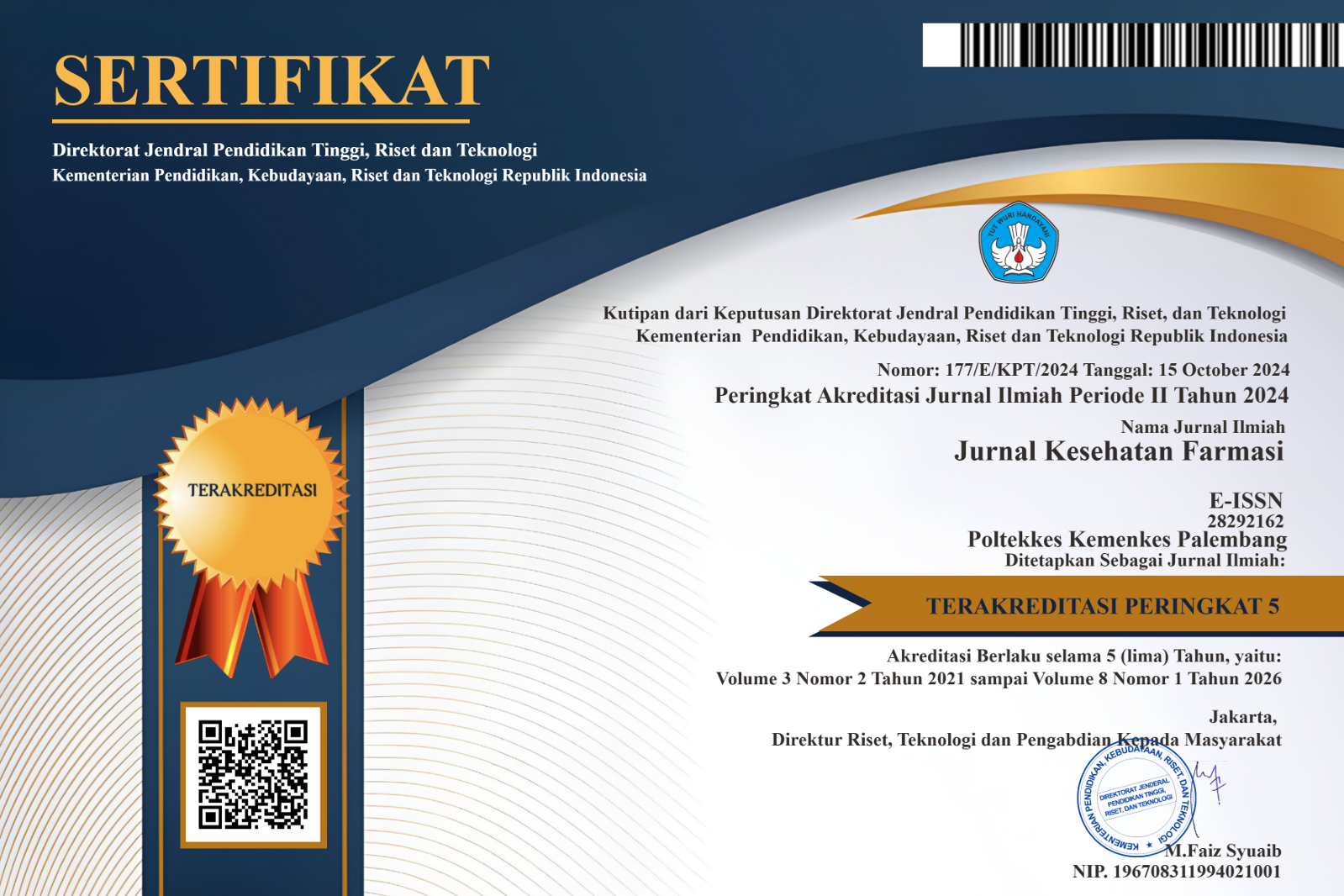Pengaruh Ukuran Partikel dan Lama Penyulingan Terhadap Jumlah Rendemen Minyak Atsiri Serbuk Temulawak (Curcuma xanthorrhiza)
Abstract
Background: Java tumeric (Curcuma xanthorrhiza) is a medicinal plant native to Indonesia which has been empirically proven to be efficacious for health to cure various types of diseases. One of the compounds in Java tumeric is essential oil. The purpose of this study was to determine the effect of particle size and distillation time on the yield of Java tumeric essential oil. Method: The extraction method used is hydrodistillation. The variables in this study were particle size (425µm and 250µm) and distillation time (3.4 and 5 hours). The data obtained were analyzed using Kruskal Wallis and followed by Mann Whitney. Results: The results showed that a particle size of 250µm resulted in a greater yield of essential oils than a particle size of 425µm. Distillation time of 5 hours produces a greater yield of essential oils than distillation time of 4 hours or 3 hours. The smaller the particle size and the longer the distillation time, the greater the yield of essential oil produced. Conclusion: Particle size and distillation time affect the yield of java tumeric essential oil.
Copyright (c) 2022 JKPharm Jurnal Kesehatan Farmasi

This work is licensed under a Creative Commons Attribution-ShareAlike 4.0 International License.
Authors who publish with this journal agree to the following terms:
- Authors retain copyright and grant the journal right of first publication with the work simultaneously licensed under a Creative Commons Attribution License that allows others to share the work with an acknowledgement of the work's authorship and initial publication in this journal.
- Authors are able to enter into separate, additional contractual arrangements for the non-exclusive distribution of the journal's published version of the work (e.g., post it to an institutional repository or publish it in a book), with an acknowledgement of its initial publication in this journal.
- Authors are permitted and encouraged to post their work online (e.g., in institutional repositories or on their website) prior to and during the submission process, as it can lead to productive exchanges, as well as earlier and greater citation of published work














